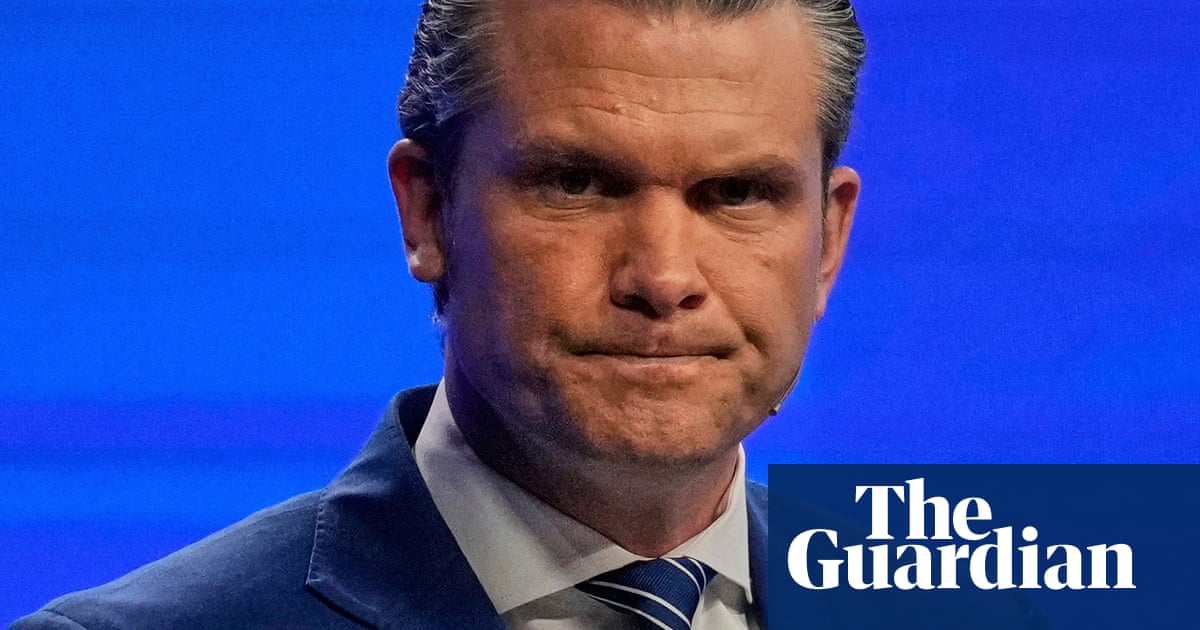Nations must move from “plunder to protection” in order to save the world’s seas from crisis, the UN chief, António Guterres, told the ocean summit on Monday.
All countries must come forward with “bold pledges” including a biodiversity target to protect at least 30% of the ocean by 2030, to tackle plastic pollution, overfishing and for greater governance of the high seas, he said at the opening ceremony. Guterres also stressed the importance of multilateralism and warned, in an apparent swipe at the US, which was not present at the conference: “The deep sea cannot become the wild west.”
“We live in an age of turmoil, but the resolve I see here gives me hope,” Guterres told the summit in Nice. “Hope that we can turn the tide. Hope that we can move from plunder to protection.”
His words drew applause from the audience, which included 60 world leaders, including the Brazilian president, Luiz Inácio Lula da Silva, and his Argentine counterpart, Javier Milei, heads of small island developing states as well as ministers, policymakers, scientists and civil society activists.
The conference, which seeks to finally get the high seas treaty in place, comes against a backdrop of increasing competition for ocean resources. In April, Donald Trump moved to fast-track deep-sea mining under US law, sidestepping ongoing international efforts to regulate the industry. His actions have lent urgency to the voices of those calling for a moratorium, amid warnings it will cause irreversible damage to vulnerable ecosystems.
Emmanuel Macron, the French president, began his address with an urgent call to “revitalise multilateralism behind the UN secretary general” in order to save oceans.
“While the Earth is burning, the ocean is boiling” warned Macron, adding that working together to “mobilise all actors, heads of state and governments speaking here but also scientists” was the only way to tackle the crisis.
Macron told leaders it was a “necessity” for nations to impose a suspension on deep-sea mining. “It’s madness to launch predatory economic action that will disrupt the deep seabed, disrupt biodiversity, destroy it … The moratorium on deep seabed exploitation is an international necessity.”
So far 37 countries have announced their support for a moratorium or pause, and in July, the International Seabed Authority (ISA) will meet to discuss a global mining code.
Macron said the high seas treaty “will be properly implemented” as he expects the crucial threshold of 60 ratifying countries to be reached. He did not specify a timeline.
The high seas lie outside national boundaries, where fragmented and loosely enforced rules have so far meant the vast area was essentially lawless.
Getting 60 countries to ratify the agreement, which in itself took 20 years to negotiate, was a crucial goal for France and Macron at the summit.
“In addition to the 50 ratifications already submitted here in the last few hours, 15 countries have formally committed to joining them,” Macron said.
The treaty, signed in 2023, will enter into force 120 days after the 60th ratification. The treaty is crucial to meet a globally agreed biodiversity target of protecting 30% of the oceans by 2030, known as “30x30”. But so too, is increased protection of national waters.
The French president has been criticised for doing less than others to meet this goal, by failing to ban bottom trawling in “protected” areas. On Sunday, France announced it would “limit” bottom trawling and seek to protect 4% of its metropolitan waters.
Nicolas Fournier, campaign director at Oceana, said: “These announcements bring more questions than answers. President Macron built expectations that the French government would finally act against bottom trawling in marine protected areas – yet these announcements are more symbolic than impactful.”
The UK announced on Sunday it would ban bottom trawling in half of its protected marine areas.
The conference comes as just 2.7% of the ocean is effectively protected from destructive activities, according to the Marine Conservation Institute.

 3 hours ago
2
3 hours ago
2

















































